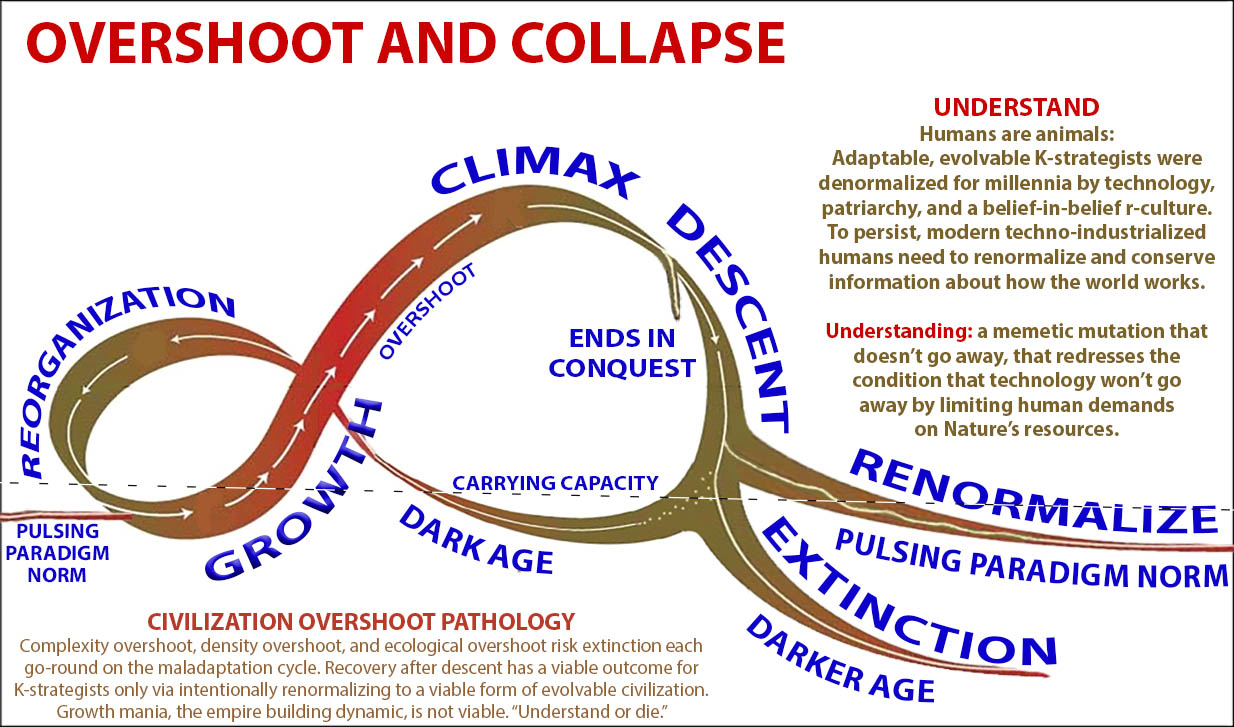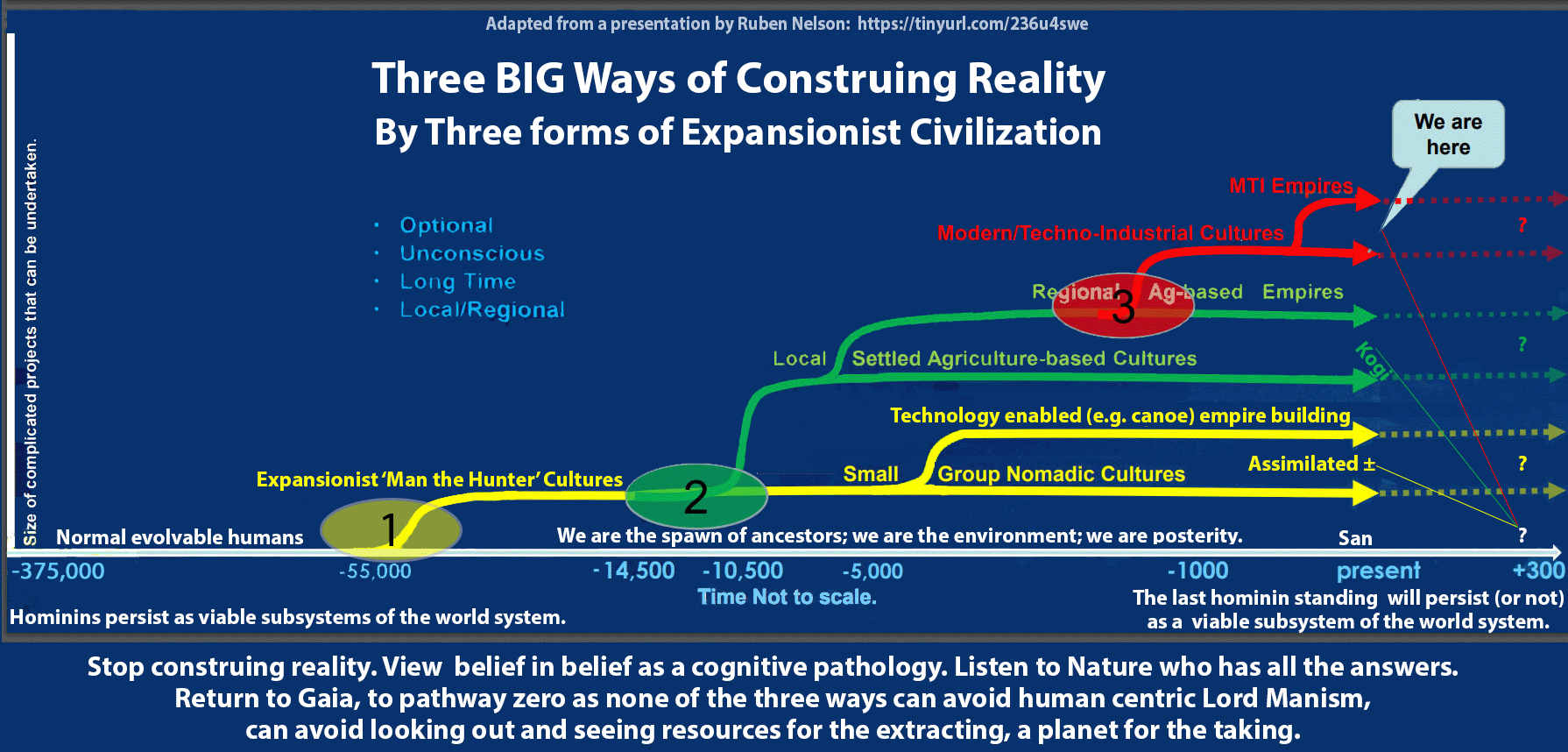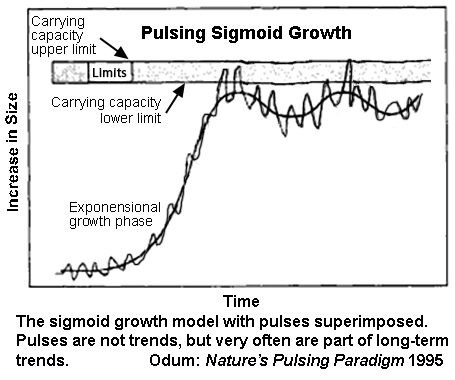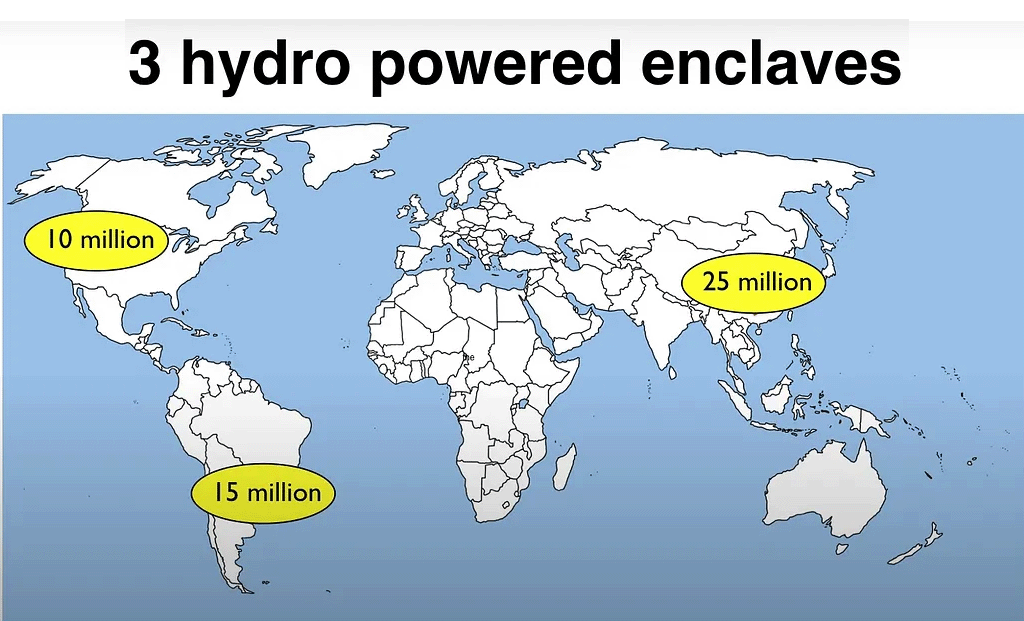
FRIDAY, MARCH 15, 2024: NOTE TO FILE

The Proposed Fourth Law of Energetics
Is it a law of open thermodynamic systems —or a principle?
Eric Lee, A-SOCIATED PRESS
TOPICS: MAXIMUM, FROM THE WIRES, POWER
Intro: The maximum power principle (MPP) is a principle in open system thermodynamics that states that systems that maximize their flow of energy will tend to persist. Auto-organizing systems (e.g. life) persist that maximize power intake, energy transformation, and uses that reinforce production and efficiency. “Natural selection” doesn’t tell us what is selected for long term. The answer is what maximally empowers the system — a system of subsystems from living organisms (and their subsystems) to the biosphere. If one subsystem, e.g. a cancer cell, goes rouge to maximize its power, it destroys the body it is part of (and then itself) and thereby fails to maximize the power of the organism it fails to serve as a normal cell that lives within limits.
Coos Bay (A-P) — The proposed fourth law is that the maximum power principle (MPP) is foundational to understanding evolvable systems, and is more than a principle. It is the first law of open thermodynamic systems, or the fourth after the first three laws of closed thermodynamic systems that is needed to begin to understand complex, adaptive, dissipative systems, especially evolvable systems. The maximum power principle, if humans can understand it (it may be more complex than we can understand), then MPP could be the 4th law of thermodynamics (those who focus on the first three are not impressed by the newcomer, so no offical recognition, but Gaia doesn't care what human know-a-lots think).
Some years ago I came to feel that the definition of MPP (maximum power principle) needed to include a temporal dimension, e.g. the words ‘long term’. To cut/paste a note:
Nature selects for [through the process of trial and error] self-organizing, complex, open thermodynamic systems [including complex societies] that persist by maximizing empower [MePP, H.T. Odum’s version of MPP] within a pulsing paradigm.
K-strategists that overpulse to maximize short-term empower, that end up destroying/degrading the system that contains them, are selected against long term.
Life on Earth is the outcome. Cancer and empire are short-term pathologies. Not all complex societies build empires. For industrial humans to persist in a viable form, they will have to understand their pathology and seek out the condition now that will come anyway, i.e. live as K-strategists by foundationally different rules of the game (a social contract) that select for behavior that works long term as Nature (who has all the answers) determines. Humans don’t get a vote.
Let’s assume I’m wrong, as usual, but this time about everything. To tell a better story I need to question fundamental assumptions. My restarting point this morning was a point made by American mathematician Norbert Wiener who noted that information is not energy or matter (so the universe is matter + energy + organizing principles/laws + information with some space-time to swim in).
Complex and evolvable systems must include information and an energy hierarchy such that empower (eM/t, eMergy/time) can be maximized, selected for, and not merely that of a subsystem (e.g. a species, but of the system, e.g. the Gaian system). If Gaia ain’t happy, most species are not going to be happy (prosper) long term.
What I’m perhaps trying to say, then, is that evoking MPP/MePP to explain the modern form of civilization’s dynamic, why we must and will grow, even if our demise is foreseeable, is a category error. Our last 75k years of expansionism as an invasive species, and last 7k years of large scale empire building, are MEP (maximum entropy principle) patterns that are non-evolvable.
We repeat the pattern of empire building as dissipative events that maximize entropy (MEP), NOT MPP. Like whirlwinds, supercells, hurricanes (full of sound and fury signifying nothing long term) our rise and falls of overcomplex societies do not include information about what works to dissipate energy that can be selected for to make future repetitions more dissipative as evolvable subsystems. Metastatic cancer is an MEP event that destroys the system it is a subsystem of (so MEP is the ideology of the cancer cell). And MTI (Modern Techno-Industrial) society is an MEP event… (in Growth we trust).
The confusion is that our overcomplex societies include information (as do cancer cells), but as there is no law of information conservation, each (mal)adaptive cycle fails, has failed so far, to pass on information about what doesn’t work to persist long term or information about what works to persist longer term. The only information (e.g. technology) passed on is about how to make the next cycle of rise/fall go higher and fall faster (thanks to technology), which is not adaptive, but the opposite.

With the Indus Valley Civilization, our only information is archaeological; we didn’t know it had existed until the 1920s, and despite the claims of some, the Harappan script/writing cannot be read, so virtually a 100% loss of information apart from archaeological evidence that their “abandoning” of cities involved leaving bodies unburied in the streets and that post collapse the only evidence of habitation was campfires of nomadic passers by who may not have been Harappan.
That they depicted humans sitting in a lotus position in artworks is known, but that a few wandering mendicants may have survived outside the region to pass on religious ideas that became part of Hinduism is a conjecture. There is no conservation law of information.
The Late Bronze Age collapse was a less than global dissipation event in which those on the downslope (for whatever reason — overshoot, climate change…), to persist a bit longer, collapsed most complex societies in the eastern Mediterranean (all the ones they could). All short-term survivors failed to persist long term, i.e. were non-evolvable non-survivors long term. Repeating this pattern globally could have a similar outcome long term (500 to 5k years). The common doomer assumption that civilization will rise again within 50 to 100 years on the downslope (collapse) is not evidence based.
In the case of the Greco-Roman Empire, scholars estimate a 90% loss of information. In terms of information that might matter about why their overcomplex system failed that might change our outcome, there seems to have been a 100% loss of information (our perchance for willful ignorance/error/illusion helps us approach a 100% failure to learn from history, and thereby to keep on repeating failed MEP patterns).
From the small scale of a few bands of humans overshooting the carrying capacity of a valley to prosper short term before moving on to repeat the pattern in the next valley (maybe a pattern repeating every 60 to 150 years and after 500 years of environmental restoration, repeating the same pattern in the same valley again), to 7k years of regional empire building as one-off plague-phase overshoot-collapse events, to the first and likely last one-off plague-phase global empire building event likely to repeat the pattern, there has been no learning curve (with one possible exception, the Tairona) as MEP events are non-evolvable.
Okay, enough prattle. I’m probably just piling errors higher and deeper. I must endeavor to understand the complex, powerful and remorseless dynamic that is dragging us along. To give Garvin Boyle the last words:
Our global economic system is NOT REMOTELY CLOSE TO SUSTAINABLE. We are captured and being dragged along by a complex, powerful and remorseless dynamic that automatically thwarts all attempts to stop it. If we don’t put time and energy into understanding it, we are doomed to go with it, right to the final curtain.
My concern is that while MPP is key to understanding what natural selection selects for, other systems that are not evolvable, e.g. dissipative structures as MEP events, also maximize power (but not information), are selected for for a time, but are non-evolvable (e.g. whirlwinds, supercells, cancer, overcomplex society/empire building), can only persist for a time.
Some interpret MPP to mean that humanity’s problematique of overgrowth, the planetary predicament of the unfolding Anthropocene mass extinction event, is determined by MPP, and (?) so nothing can be done to alter the overshoot outcome (justifying fatalism which disallows thinking about potentially viable long-term outcomes much less doing anything other than enjoying life while you can).
Evoking MPP/MEP to authoritatively explain why there is nothing that can be done to save the metastatic cancer dynamic IS NOT CORRECT. Self-identifying with the MTI (modern techno-industrial) expansionistic form of civilization, and concluding correctly that it can’t be saved (apart from perhaps 3 hydro-powered megacities), is a category error of identifying with the cancer (MTI society) and not the species as soma (as subsystem of Gaia).

The expansionist “Man the Hunter” cultures were 20k years in the developing within Africa prior to the Great Human Expansion within and out of Africa 55k years ago.
If normal humans, qua animals, are not a systems pathology (analogous to a metastatic cancer), but a subsystem of the Gaian system, as were our K-strategist hominin ancestors for over six million years, then a paradigm/cultural/worldview/mindset/memetic shift from human centrism to nature centrism may be needed to persist long term.
Humans having a potential to renormalize (0.001%?) could consider doing so and self-organize to select for a different outcome provided MPP is understood to not preclude modern humans from renormalizing as complex, adaptive, dissipative AND evolvable K-strategists again even if we cannot put technology and complexity back in its bottle.
What we as K-strategists can do is limit technology and complexity to what is biophysically enough (needs vs wants) as doing so doesn’t violate MPP, but selects for maximum empower of the Gaian system long term and thereby human persistence). We may have more than a behavioral crisis, one that is foundationally a cultural/worldview/form of civilization crisis that has been 75k years in the development as a systems pathology.
My ancestors have likely been K-strategists for 500 million years (if not longer as bacteria), and responding to evidence of having crossed the lower limit of carrying capacity (via GAS) to reduce the total fertility rate to avoid crossing the upper limit of carrying capacity is the norm, is selected for to maximize the empower of the system/biome long term (which may involve extinction of an overshoot population/species).
By definition, crossing the upper carrying capacity limit (overshoot) always has an adverse long term outcome (of degrading environmental productivity the overshooting species depends on and thereby is harmed by failure to avoid overshoot, and so short-term MPP is always selected against as the eons go by — short-term maximizing, e.g. cancer, is a systems pathology).

The species would be a K-strategist, e.g. all primates (except modern denormalized humans).
Wolves are K-strategists. Domesticant dogs are de facto r-strategists unable to limit reproduction.
Evolvable systems maximize power, energy capture (and increase information stored in genes/memes, e.g. meta-reflection adds information about information systems), of the system (and subsystems of the biosphere) long term. Dissipative systems, non-evolvable, do so short term. The MTI form is non-evolvable (no more than storms full of sound and fury, signifying nothing).
To “understand” this condition choicelessly changes human behavior, worldview, mindset, culture, and form of civilization towards the long term viable, i.e. “to understand something is to be delivered from it” (conjecture attributed to Spinoza, e.g. if you understand what a landmine is, how it really works, and don’t want to turn into a red mist, you cannot choose to step on it).
If civilization’s running out of gas story is understood, those humans who do cannot choose to “keep on keeping on” and those who do evidence their failure to “understand” by continuing to step on the landmine to maximize short-term self interests. There is no easy pathway to “understanding,” and 8 billion humans are unlikely to follow it.
We are entrapped in a slow-motion dynamic/trajectory of stepping on a landmine (mass extinction event likely to include humans, that too few understand, ergo…).
The condition of 0.1% of humans understanding our trajectory could have the outcome of pulling back within enclaves — possible up to a time (pre-climax?) until we can’t (when we are on the downslope).
MPP is not determinate. Like oncological cancer treatment, “to understand something” may select for a viable outcome for our species (in proportion to those who can understand their condition) if not for our current form of civilization.
Some enclaves of viable pockets of society may have a better outcome than zero. Three potentially viable enclaves would be better than one not remotely sustainable global MTI Empire, and may be enough. Twenty-five thousand eggs in basket Earth could have a viable long term outcome.
Jack Alpert’s videos with transcripts
Americans won’t be the first to build a hydro-powered megacity. But China will, then help South America. And whether US/Canadians with Euro support build one may not matter. In a low energy world, the megacities are too far apart to be in conflict. The rest of the habitable world will be systemically managed by the United Federation of Watersheds. Or not. Just keep on keeping on and good luck with that — maybe Klaatu will return.
— — — — — — — — — — — — — — — — — — — — — — — — —
So, “if this be error and upon me proved” I can correct the above. The other issue is the interpretation of some that MPP determines our modern condition of overgrowth…naturally. We moderns are just obeying the law, which I view as a failure to understand that could prove fatal. To persist, to be evolvable, we need to apply MPP to evolvable systems which involves long term selection for what works. Jack Alpert’s social contract defines limits, the sine qua non of K-strategy/K-culture. We need to be like trout and not salmon (unless 50% of each generation doesn’t reach adulthood, a hominin norm).
— — — — — — — — — — — — — — — — — — — — — — — — —
